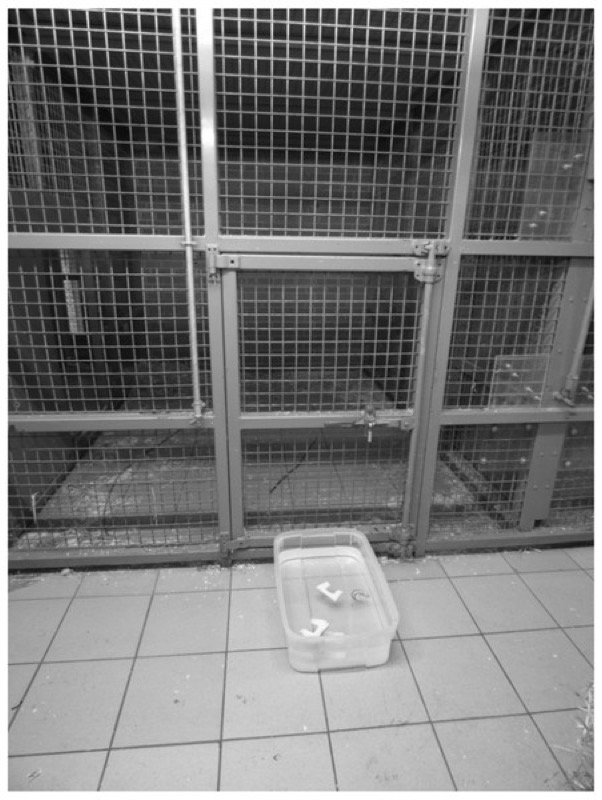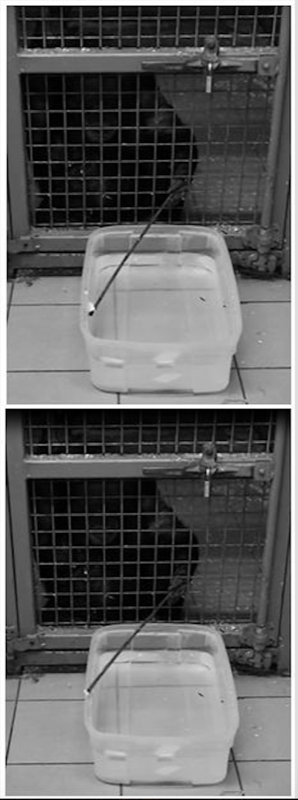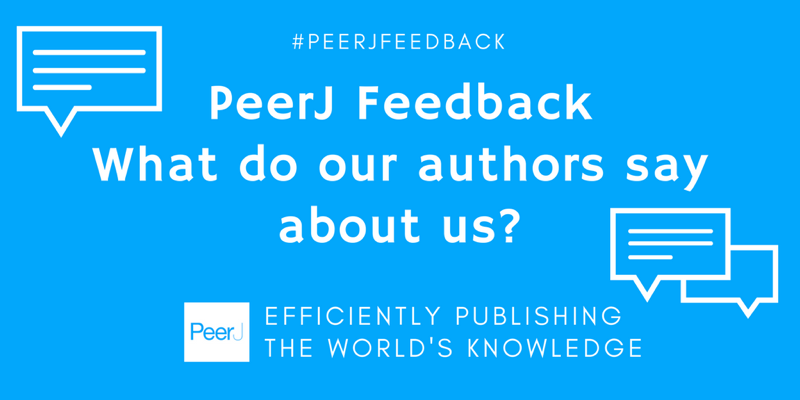 Credit: Chimpanzee, taken at the Los Angeles Zoo by Aaron Logan (CC BY 2.5)
Credit: Chimpanzee, taken at the Los Angeles Zoo by Aaron Logan (CC BY 2.5)
We recently published Spontaneous reoccurrence of “scooping”, a wild tool-use behaviour, in naïve chimpanzees by Elisa Bandini and Claudio Tennie. Their research looks at the individual learning capabilities of chimpanzees. The study published in PeerJ tested whether naive chimpanzees – captive chimps who are naive to tool use – could successfully and spontaneously use sticks as tools like their wild cousins do. We interviewed Elisa Bandini about the research and publishing process.
Can you tell us a bit about yourself?
I am a third-year PhD student at the University of Birmingham and have recently moved to the University of Tübingen. I am interested in the evolution of both human and non-human primate tool-use and the cognitive mechanisms behind their emergence.
Can you briefly explain the research you published in PeerJ?
Our study experimentally tested captive chimpanzees for the reach of their individual learning capabilities. We provided the chimpanzees with all the materials for a suspected wild chimpanzee cultural behaviour known as ‘algae scooping’. In the wild, some populations of chimpanzees will ‘scoop’ floating algae from the tops of lakes and rivers using sticks and a ‘swiveling’ action of the wrist. As a suspected culture, this behaviour (amongst other chimpanzee tool-use behaviours) has been suggested to be influenced by social learning.
Yet, it might instead be more similar to the case of yawning: social learning (observing others) may increase the frequency of yawns, but we can still yawn entirely on our own, and in fact, we do not copy others’ styles of yawning.
Based on earlier similar behavioural studies, we hypothesized instead that the scooping behavioural form could be re-innovated spontaneously by naive chimpanzees – i.e. by those that had no previous experience with it. Indeed, within the first couple minutes of testing, this behaviour (crucially, including the defining swiveling action) emerged two times – in two separate groups.
Neither of the chimpanzees that re-innovated the behaviour had ever seen it before. From these results we can logically conclude that whilst low-fidelity social learning may play a role in facilitating the frequency of the behavior (as in yawning), social learning is not strictly necessary for this behavior to come about (again, as in yawning). Individuals come up with this behaviour on their own. Potentially other chimpanzee tool-use behaviours come about spontaneously in this way as well, although this remains to be tested (a line of research we are currently working on).
Do you have any anecdotes about this research? Any challenges you came across?
One of the hardest parts of designing this experiment was finding food that floats on water to replicate the floating algae in the wild. As we could not use algae (due to the fact that the appropriate type can only be found in Africa), we had to find an alternative floating food that the chimpanzees would be motivated to retrieve. We spent some time testing all different types of food to see whether they floated (turns out, very few food types float) until we finally found that dried bread will float for enough time to allow the chimpanzees to retrieve it using sticks.

What kinds of lessons do you hope the public takes away from the research?
We hope that the general public will realize that whilst humans and chimpanzees have a lot in common, our cultures likely rest on fundamentally different mechanisms. Whilst modern human culture would collapse without social learning (just think of all the objects and behaviours that no single individual could re-innovate on their own on the spot; e.g. the computer or other technology you are using to read this), chimpanzee behaviours and tools might all be re-inventable on the spot even by naïve individuals. Chimpanzee cultures are what happens if a species really does have to “reinvent the wheel” every time anew: the resulting “wheel” will not change – or will change very very slowly.
How did you first hear about PeerJ, and what persuaded you to submit to us?
PeerJ was recommended to us by other researchers. The (affordable!) open-access and approachable culture of PeerJ persuaded us to submit our paper to this journal.
Do you have any anecdotes about your overall experience with us?
We found overall that the review process was quicker than at other journals, and that the editor was always very fair and friendly in emails and when delivering reviews.
How would you describe your experience of our submission/review process?
The submission process was easier to navigate and less demanding than at many other journals. The review process was quick and fair.
Would you submit again, and would you recommend that your colleagues submit?
Yes, definitely.
Sign up for free weekly content alerts on the latest research in animal behaviour and evolutionary studies.


